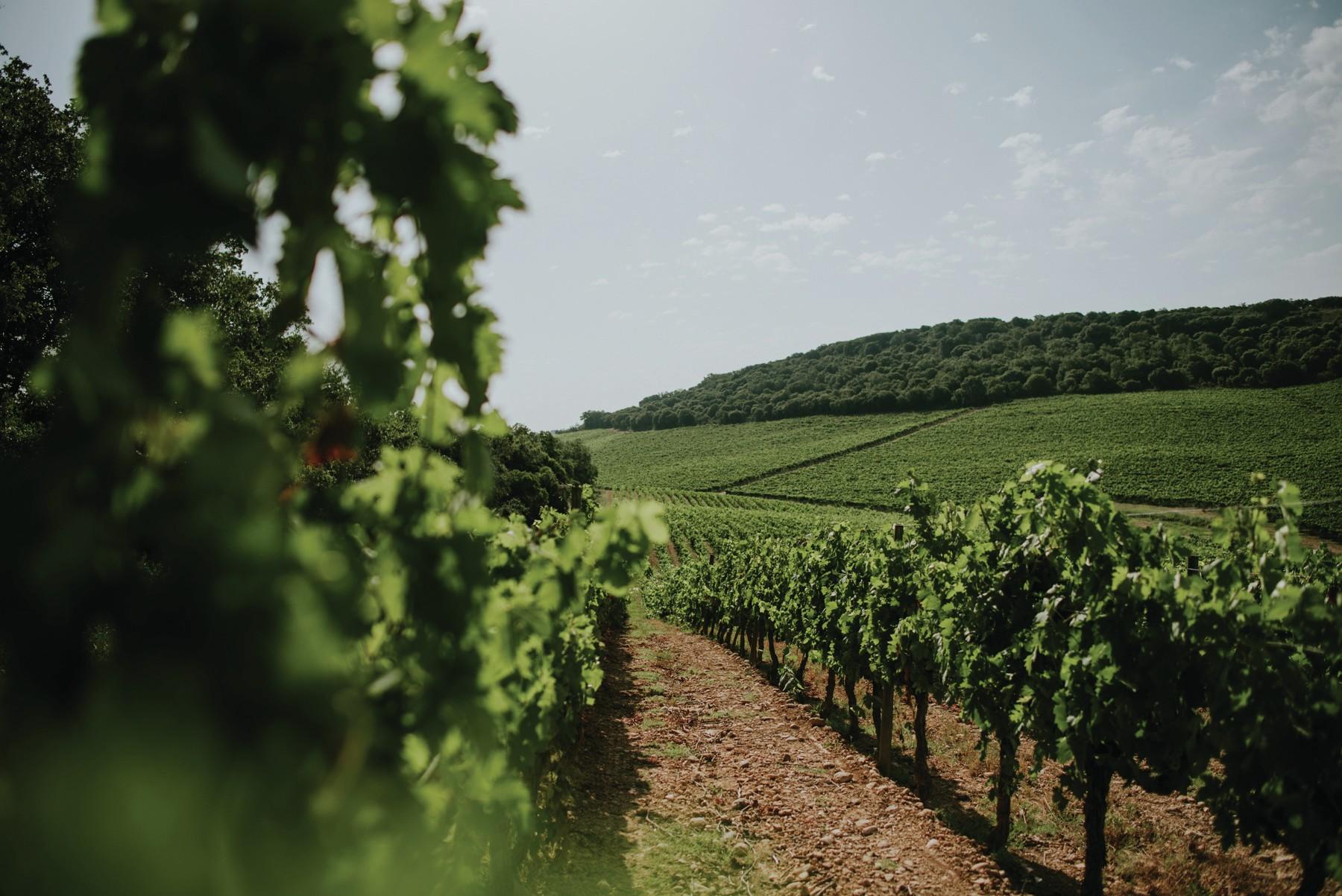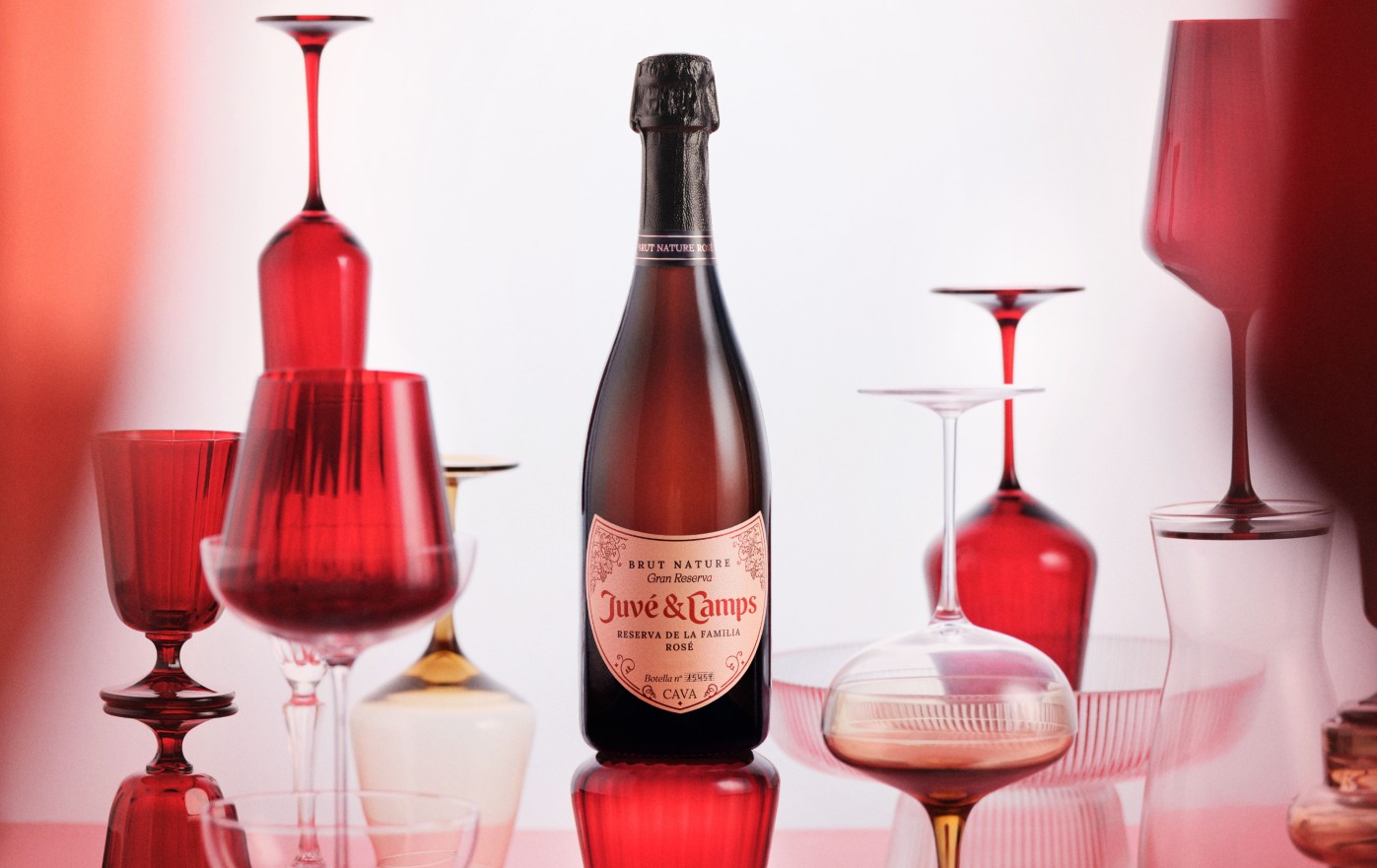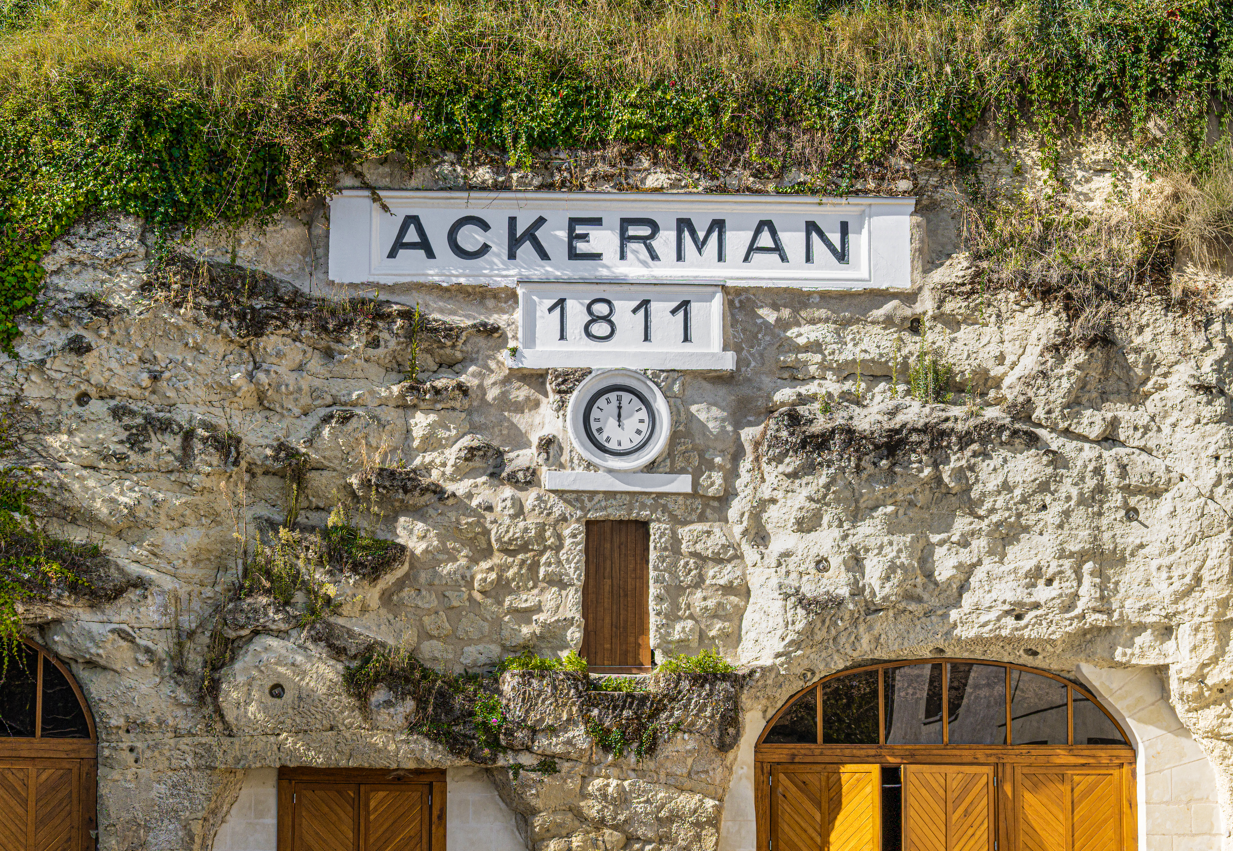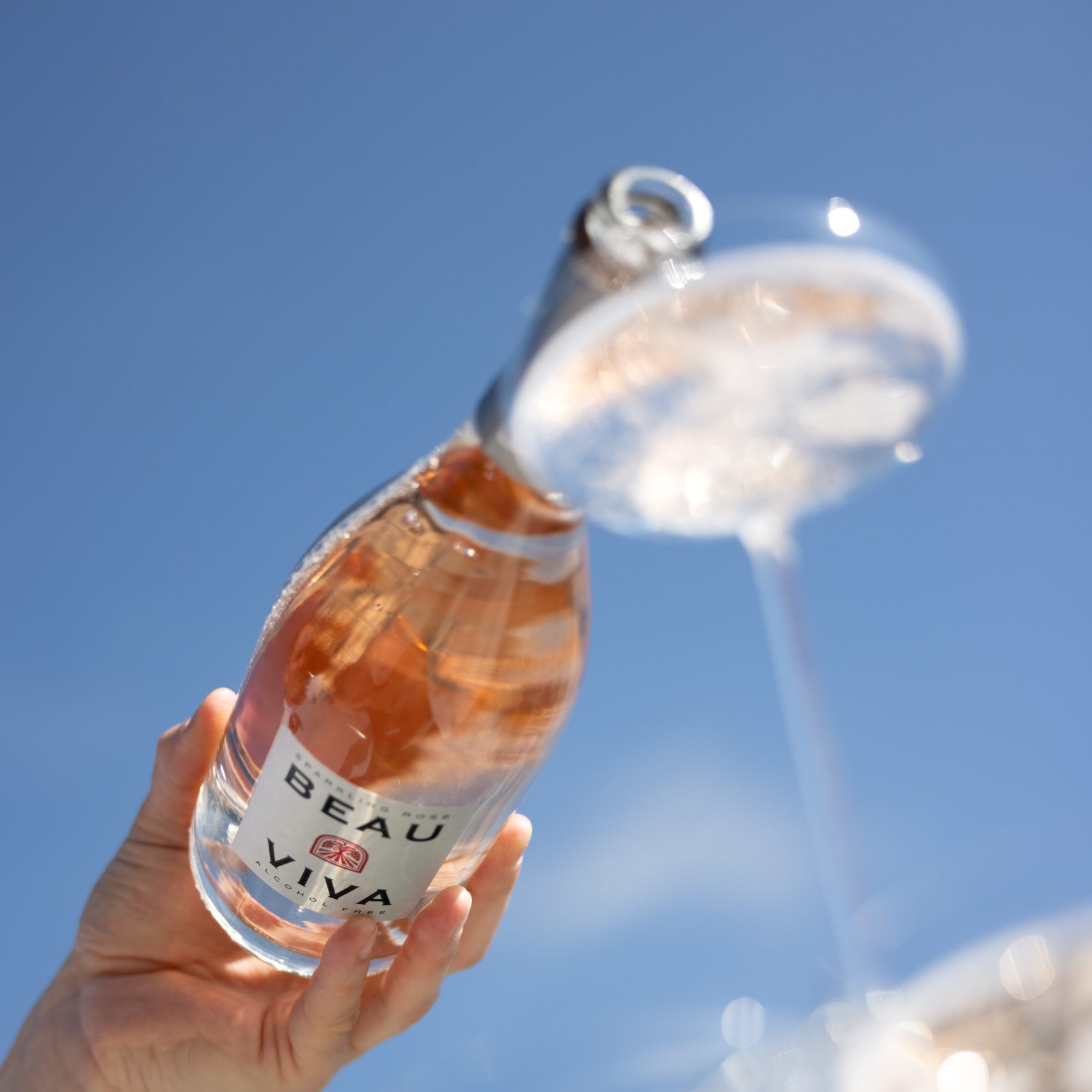In focus: London sommeliers that make wine
Sommeliers spend their lives opening, sniffing, pouring and tasting some of the finest wines in the world, so it’s unsurprising that many dream of making their own one day. Turning this dream into reality isn’t easy, and requires an understanding employer, killer connections and a silver tongue. With provenance having been a priority of chefs for the past decade, to the point where waiters can tell you the name of the cow behind your rib-eye, the chance for sommeliers to get closer to their product and have a hand in making it is a win-win for both the somm and the diner.
It gives the former a golden opportunity to craft a product they’ve spent their life learning about, and the latter an interesting story and added assurance of the quality of the liquid inside their chosen bottle, particularly if it’s been made by the same hands that poured it. Given the time and cost involved in making wine, the most feasible way for time-poor sommeliers to squeeze it in is by collaborating with a winemaker they’re on good terms with and renting a space in their cellar. One such sommelier is Jack Lewens, co-owner of trailblazing seasonal small plates venue Leroy in Shoreditch, which recently won a Michelin star.
This summer, Lewens released the first beautiful bottles from his Vigneti Tardis brand, a Campania-based creation made in collaboration with his long-time winemaker friend Bruno de Conciliis, who he first crossed paths with while at The River Café. Having worked as head sommelier at Ruth Rogers’ beloved Hammersmith Italian for five years, after leaving for pastures new, Lewens did his first harvest with Conciliis in 2007 and has been back each year since.
Financial backing He describes his first vintage as “the most magical thing”, as he relished being close to nature after five years of long shifts on the restaurant floor. Conciliis was the obvious choice as a collaborator for Vigneti Tardis, and Lewens admits that the project wouldn’t have been possible without him.
The venture has been financially backed by some of the most exciting names in the London restaurant scene, including Leroy co-founder Ed Thaw; the indefatigable Michael Sager of Sager + Wilde and newbie Fare Bar + Canteen in Clerkenwell; Stevie Parle of the Italian accented Rotorino and Palatino (who worked with Lewens at The River Café); and Jackson Boxer of Brunswick House in Vauxhall and St Leonards in Shoreditch, whose artist mother, Kate, designed the brand’s quirky labels.
The 2017 wines in the Vigneti Tardis range are named after days of the week in Italian – Martedi (Tuesday) is a red blend made predominantly from Aglianico, which Lewens has handled with kid gloves, using only the free-run juice to bring out its freshness and fruitiness rather than the traditional tannic power associated with the gutsy grape.
Venerdì (Friday), meanwhile, is a floral, stone fruit-scented Fiano/Malvasia skin-fermented and partially barrel-aged white blend. Both hail from a 4.5-hectare plot in Cilento national park leased from Conciliis and carry an on-trade bottle price of £45 in all of the aforementioned investors’ London restaurants, who will also be selling them by the glass at £8 a pop. Quo Vadis, The River Café and Noble Rot have also taken on the wines.
For these projects to succeed, sommeliers need to be savvy about making wines that can be bottled and listed quickly, so reds that require a long sleep in a cellar before release are out of the question. Having made just 6,000 bottles last year, Lewens is on track to produce 20,000 this year, which he plans to sell in the New York and Paris on-trade, as well as London. “Ramping up our production means there is more financial pressure on us to make sure we balance our books, so nailing the US market early will be key,” he says.
“I’ve gone in at the deep end, but it’s important that our partners have something to reward their investment quickly.”
Ever restless, Lewens is also working on a pet nat sparkler; high-end red Jovedi (Thursday), made from a stellar small parcel of Aglianico, which is due to be on Leroy’s list by Christmas priced at £60 a bottle; and a white vermouth made using a Trebbiano base, featuring botanicals foraged from Cilento national park, including three types of wormwood indigenous to Campania.
The winemaking side of things demands so much of Lewens’ attention that he’s called time on his sommelier duties at Leroy.
Having recently become a father for the first time, something had to give. “This is a long-term project, not a fly-by-night thing. We’ve leased the land for 15 years and I plan to spend up to five months a year in Italy during harvest and all the key stages of the growing season. Chefs have farms, so why can’t sommeliers have vineyards – it’s a natural progression of the provenance movement,” says Lewens, who admits to making his wines on a shoestring budget.
Taking more of a nomadic approach to winemaking is bartender-turned-sommelier Nick Jones, the self-styled ‘baron of booze’ at Soho disruptor Flavour Bastard. Keen to clock up as much winemaking experience around the world as possible with his girlfriend at the time, Plumpton graduate Jones made his first small batch of bottles in the Languedoc in 2012, leasing a tank in a garage from an old college friend.
The project lit a spark in him, and led to the formation of his peripatetic wine company WMD (Wines of Momentary Destination). “I’d just graduated and had bugger-all money but wanted to make my own wine. The idea with WMD was to make wines that were a snapshot of one place from one year all over the world,” says Jones, who admits that he found it hard being accepted into the local winemaking community in Roussillon. “I met a guy in a local pub and managed to get him drunk enough to persuade him to help me get my hands on some good quality grapes. The first few parcels he showed me were terrible wild boar-ravaged things that were never going to ripen, but I eventually managed to score some really lovely young-vine Syrah from him.”
Article continues on the next page
Like Lewens, Jones’ debut red was made in an approachable, easy-drinking style, meaning it could be bottled quickly. He has since gone on to make boutique bottlings in Germany, Croatia, Greece, Slovenia, and a couple of wines from the Southern hemisphere. foresight While on the road he relished his nomadic lifestyle. “It was a great feeling to rid myself of my possessions and live out of a backpack. You always want to be there to taste the wines, but once they’re maturing you can have trusted friends send you barrel samples. You have to have confidence in your foresight about how the wines are going to mature,” says Jones, the former head brewer for London mead brand Gosnell’s, who has since moved on from Flavour Bastard to set up a canned wine company.
The controversial restaurant has been closed since 6 August, though owner Vic Singh insists the site will reopen imminently. While working at the restaurant, as well as curating one of the most exciting wine lists in London, Jones loved being able to sell three of his own wines to curious consumers: The Spectre Mosel Riesling 2013, emblazoned with a spooky skull label; Terms of Venery Sylvaner, an orange wine from Slovenia; and Three Years Down, from the Greek island of Chios, made from local red varieties Chiotiko Krassero and Ayanitis. “I was given carte blanche with the wine list, and it was great to have the opportunity to include producers that I’ve collaborated with. I enjoyed seeing how people responded to the wines, but you have to bite your tongue sometimes, as you can’t be too over-protective of them, despite having nurtured them.
Partner Content
Working as a sommelier there can often be a disconnect between those who make the wine and those who sell it, so it’s great to be able to be a voyeur, and see people’s reactions first hand to the wines that you’ve made.”
South African-born Angelo van Dyk of London-based wine bar Bedales, which has sites in Borough Market, Spitalfields and Leadenhall Market, believes it’s not only a privilege but a necessity for people who sell wine to have made it at least once in their career.
“To have never had a hand in the winemaking process would be as short-sighted as being a butcher and never having stepped into an abattoir. If you’ve never experienced the process of making wine, you will never understand it in its entirety,” he says.
“The sun rising over dew-soaked soils; the low rumbling of tractors in the distance; freshly trodden grape juice, ice cold under foot; and the back-breaking efforts of punch downs all add to the appreciation of the final product.”
Keen to fulfil his dream of making wine in his homeland, having gained valuable experience at Wind Gap in Sonoma, this year van Dyk, who briefly studied winemaking at university before switching courses, took two months of unpaid leave, packed his bags and headed to the Western Cape.
Before he left, he raised enough money from a small pool of friends to make a boutique red blend in collaboration with Francois Haasbroek, former chief winemaker at Waterford Estate, who now runs his own boutique project called Blackwater Wine.
The pair met when van Dyk spent a few months as a cellar rat at Waterford after graduating. Having kept in touch over the years, the visionary Haasbroek was an ideal mentor for van Dyk. “He helped me source the fruit and let me rent space in his winery, so was crucial to the project getting off the ground – I would have struggled without him.” Having planned to produce Syrah from Elgin, Mother Nature had other ideas, as the plot van Dyk had his eye on wasn’t ripening quickly enough, so he settled on a block of Syrah from Paarl and a parcel of Grenache from Bot River.
Financial constraints “You quickly realise that you’re at the mercy of the elements and you have to be flexible. People who make wine in a garagiste way adopt a minimum-intervention approach not because of trends but through necessity and financial constraints,” says van Dyk, who had to make a call on the Paarl Syrah block without even tasting it.
Fortunately, the fruit exceeded expectations. The resulting wine, Yo El Rey (meaning ‘I The King’ in Spanish), which is how the young Picasso signed his paintings, is a “delicate” 50/50 blend of Syrah and Grenache, which will be bottled this month after spending eight months in oak.
For his inaugural vintage van Dyk produced just 1,800 bottles, which will go on sale at Bedales next spring. Illustrating the level of camaraderie that exists among the London restaurants and bars trying to push the wine conversation forward, Leroy and Sager + Wilde are keen to take it on.
Van Dyk’s key motivation was the chance to work outdoors again. “I missed feeling connected to nature and had started to feel claustrophobic in London. Bedales has been incredible in giving me the time off to do this, as the company felt the strain while I was away,” he admits.
The future of Yo El Rey lies in the balance, as van Dyk is keen to make the wine every year, but isn’t sure if it’s a viable possibility alongside his work commitments in London. “A conversation needs to happen and I hope we can figure out a way for me to do it as I’m happy to work around the project to pursue it,” says van Dyk, who has a white in his sights and would love to make a skin-contact Pinot Gris.
The number of London sommeliers who moonlight as winemakers is growing, from Igor Sotric of China Tang at The Dorchester, who makes a Burgundian-style Chardonnay with Marjan Simcic near the Italian border in Slovenia, and ex- Sager + Wilde somm Gergely Barsi Szabó, who makes a dry Furmint in Tokaj with sommelier friend Donald Edwards, to former Zuma head somm Alessandro Marchesan, who now works for Zonin1821 and makes Mas La Mola, a perfumed Garnacha from Priorat distributed by Liberty Wines in his (precious little) spare time.
Chef Roger Jones of The Harrow at Little Bedwyn in Wiltshire is also in on the act, and makes a South African Chenin, Pinot Noir and Chardonnay for his Jones Family Collection in collaboration with Newton Johnson in the Hemel-en-Aarde Valley and Stellenrust in Stellenbosch. Give up the day job Proving how difficult it is to be both a full-time sommelier and a winemaker, many somms with grape-growing aspirations have to take on less demanding day jobs to carve out the time to make wine. Sommeliers have one key advantage over other winemakers – having worked the floor day and night, they have first-hand experience with consumers, and know which wines fly out of their cellars and which gather dust.
“Our USP as sommeliers is that we understand the market and we make wines that consumers will like, or at least our sommelier friends will like,” jokes Michael Sager, who collaborated with Rajat Parr in 2014 on a Sager + Wilde own-label Santa Rita Hills Pinot Noir, and has gone on to make a number of own-label wines for the bar in collaboration with boutique winemakers, such as Rheingau-based Eva Fricke and Californian pet nat fanatic Michael Cruse.
“As a sommelier it’s virtually impossible to make your own wine from scratch without partnering up with an established winemaker. It’s a romantic notion but sommeliers don’t have the freedom you need to be a winemaker,” says Sager, who, as well as the Vigneti Tardis project, has a small-batch mezcal range, a vermouth, Mexican rum, Colombian triple sec and a soda brand in development.
For most sommeliers, the desire to make wine isn’t about making money – they of all people know how tough it is to make a tidy profit in the industry – it’s about something far deeper than that. It offers them the chance to swap their tailored suit for a T-shirt, get their hands dirty and connect with the terroirs they’ve idolised for years, allowing them to create their own unique snapshot of liquid history that they can be proud of.





Wine Merchants have had tendency towards making wine as well, it’s that elemental thing.
I’m such a proud daddy
wel done jack
where are you praiser italy?
dx